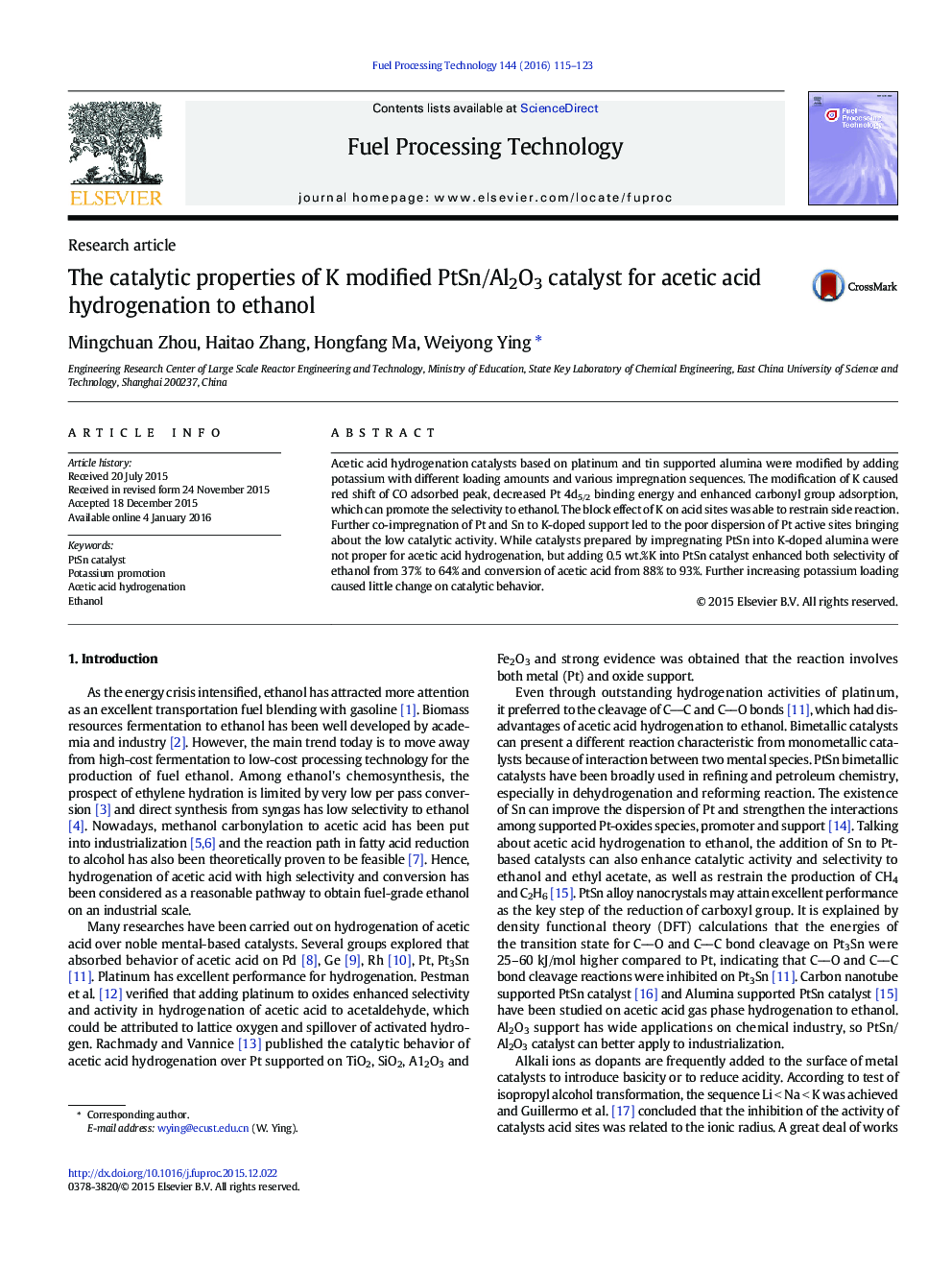| Article ID | Journal | Published Year | Pages | File Type |
|---|---|---|---|---|
| 209263 | Fuel Processing Technology | 2016 | 9 Pages |
•Adding K to PtSn/Al2O3 was more suitable for acetic acid hydrogenation.•The electronic modification of potassium can hinder the formation of CH4.•K block effect on acid sites suppressed ethanol dehydration and esterification.•More than 0.5% loading of potassium had no obvious influence on performance.
Acetic acid hydrogenation catalysts based on platinum and tin supported alumina were modified by adding potassium with different loading amounts and various impregnation sequences. The modification of K caused red shift of CO adsorbed peak, decreased Pt 4d5/2 binding energy and enhanced carbonyl group adsorption, which can promote the selectivity to ethanol. The block effect of K on acid sites was able to restrain side reaction. Further co-impregnation of Pt and Sn to K-doped support led to the poor dispersion of Pt active sites bringing about the low catalytic activity. While catalysts prepared by impregnating PtSn into K-doped alumina were not proper for acetic acid hydrogenation, but adding 0.5 wt.%K into PtSn catalyst enhanced both selectivity of ethanol from 37% to 64% and conversion of acetic acid from 88% to 93%. Further increasing potassium loading caused little change on catalytic behavior.
Graphical abstractFigure optionsDownload full-size imageDownload as PowerPoint slide
